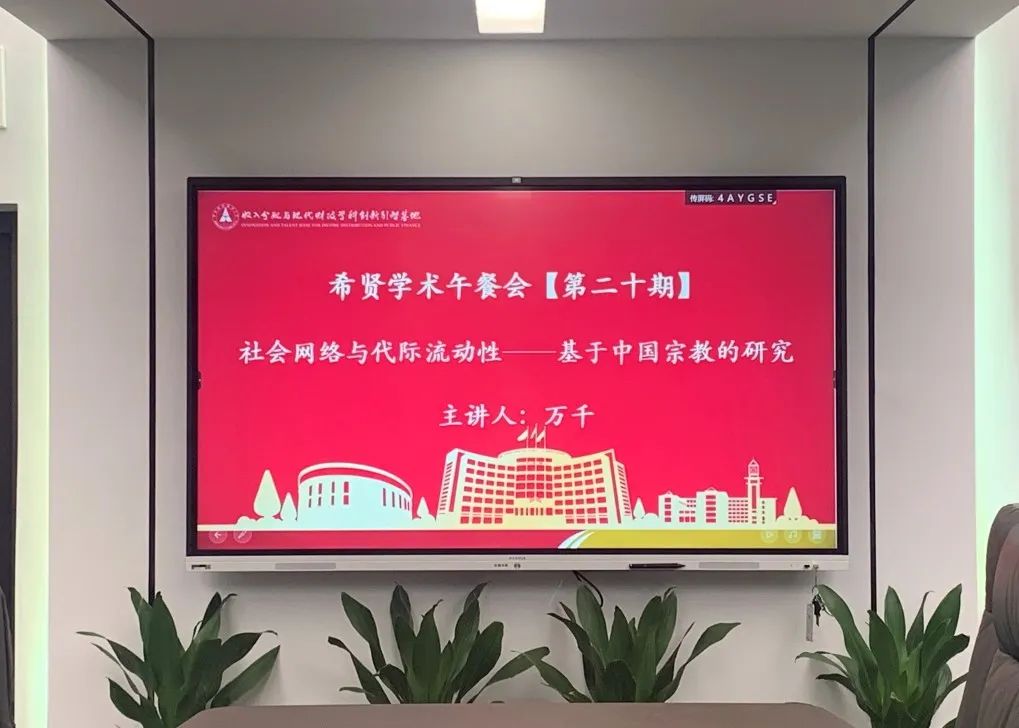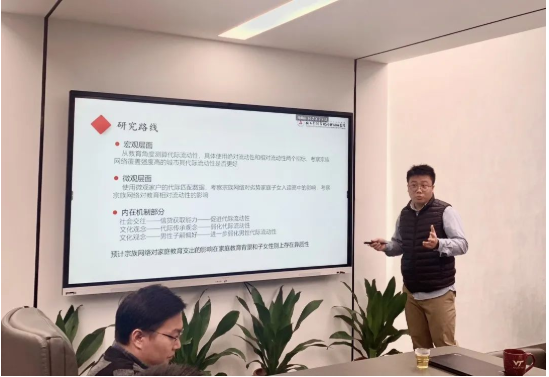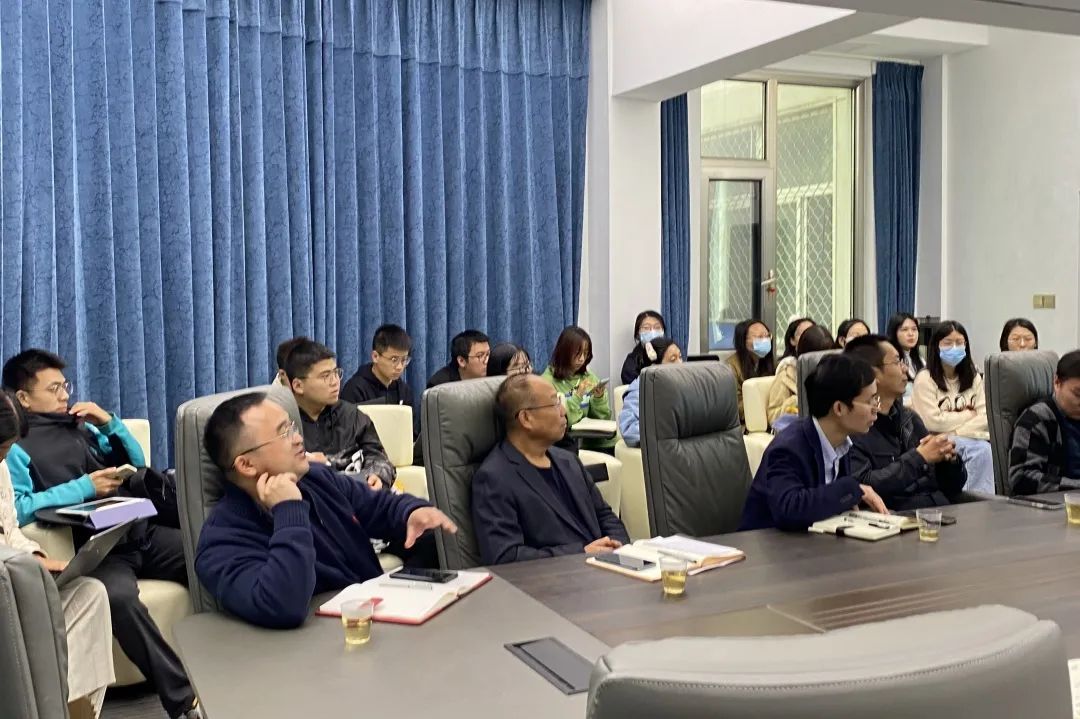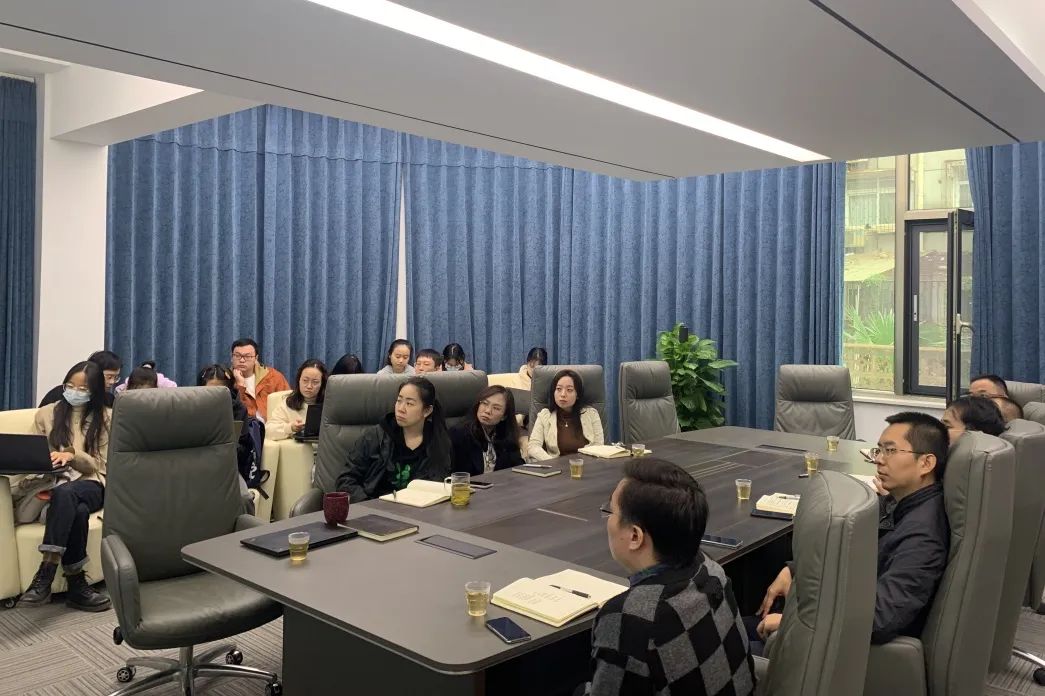
The 20th Xi Xian Academic Luncheon, co-organised by IIDPF and the School of Public Finance and Taxation, was successfully held on 27 October 2022 in Conference Room 119, Wenqin Building. Dr Wan Qian, a full-time researcher at IIDPF, was the guest speaker at the luncheon and gave a talk entitled Social Networks and Intergenerational Mobility - A Study Based on Chinese Clans. The forum was chaired by Dr Zou Wei, researcher of the IIDPF. More than forty participants, including Professor Sun Qunli, deputy director of the IIDPF, Professor Lu Yuanping, executive deputy director of the IIDPF, and researcher Dr Wan Xin attended this event.

The influence of social networks on intergenerational mobility is a cutting-edge research topic in the field of labour economics at the moment. In this context, Dr Wan examines the impact of clan networks, which are widespread at the grassroots level in China, on intergenerational mobility. The study found that clan networks significantly increased educational opportunities for the offspring of relatively disadvantaged peasant families, improving absolute educational mobility, and only significantly weakened the degree of association between rural women's educational performance and family educational background, improving rural women's relative educational mobility. Further mechanistic tests found that clan networks facilitated social interaction and mutual assistance between households, increased the likelihood of households accessing informal borrowing, reinforced the notion of intergenerational family inheritance and led to increased household expenditure on education. However, male offspring preferences embedded in clan networks have a negative impact on the relative educational mobility of rural males.


Dr Wan Qian gave a fascinating talk to the audience while also stimulating in-depth thinking on the research topic. During the discussion session, faculty and students in the audience spoke enthusiastically and had extensive exchanges on issues such as research design and influencing mechanisms. The paper has important implications for the study of factors influencing intergenerational mobility.
